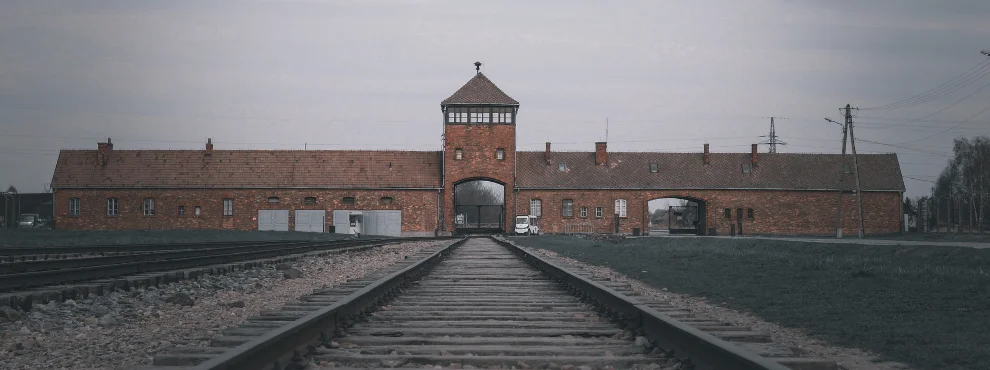Looking at the Nazi era in medical training
The commission "Medicine, National Socialism and the Holocaust" of the renowned journal "The Lancet" summarises various contributions on the topic - including a model curriculum of the UW/H.

How can the moral compass of medical students be sharpened? How can lecturers promote the professional identity development of medical students so that they act in a reflective and - if necessary - resistant manner? And why is it important to deal with the Holocaust and the crimes of National Socialism in medical education? Answers to these questions are provided by a model curriculum from Witten/Herdecke University (UW/H), which has now been included in the compendium of the commission "Medicine, National Socialism and the Holocaust: Historical Evidence, Implications for the Present, Training for the Future" of the renowned medical journal "The Lancet".
During the Nazi era, millions of Jews, Sinti and Roma, people with disabilities, numerous other population groups and political opponents were systematically persecuted for ideological reasons, abused for forced labour and experiments and brutally murdered. Healthcare professionals in particular facilitated the industrialised mass murder. Dealing with these crimes after the Second World War played a decisive role in the development of today's professional ethics in the health care system. Reflecting on history and learning from it is not only important for practising physicians, but also for students; however, the topic is rarely covered in medical training.
Reflecting on one's own role as a physician
The commission has therefore summarised scientific contributions that underline the importance of history and its reflection; based on existing medical curricula, it also makes concrete recommendations for training. "The key thing is that our report is not just about history," says Dr Hedy Wald, member of the Lancet Commission. "Of course we categorise the events historically, but we go one step further: we want to enable what we call 'history-informed professional identity formation'. After all, the identity development of medical professionals should not ignore the past: In light of wars and terror all over the world and the ethical complexity in medicine, reflecting on our work and our role in society today is more important than ever. This is where Witten/Herdecke University is a pioneer in education."
This is how the doctor Diethard Tauschel and the team of the Integrated Curriculum for Anthroposophic Medicine at UW/H are working in cooperation with Prof Dr Peter Selg, Ita Wegman Institute (Arlesheim, Switzerland), and the WittenLab. Zukunftslabor Studium fundamentale at Witten/Herdecke University has been working on the topic of medical awareness and ethics using the example of medicine under National Socialism since 2009. In 2019, they set up a three-year model curriculum that addresses this topic: with excursions to memorial sites of former concentration camps and killing centres, including intensive preparation and follow-up work. In seminars, individual work, reflection groups and on site, students deal with the history of medicine and the role of doctors before and during the National Socialist era.
In Auschwitz, for example, the focus is on the terrible deeds of SS doctors, but also on the biographies of doctors who offered resistance. "They have developed a resilience that deeply affects the participants," says Diethard Tauschel. As a result, the students began to think about themselves and their appointment. How can we live humanistic values and develop resilience against dehumanisation? "Our vision is to use experiences like this to make a difference in medical training: to be historically informed, to understand the emotional and moral influences and to derive insights for our own studies and later work." Numerous current debates, such as the question of the beginning and end of life, could benefit from an understanding of this history.
Understanding history to shape a better future
"In order to adequately meet the current challenges in the healthcare system, we need more than just the scientific basics. It requires a reflective ability that, in addition to introspection, also approaches the major moral and political issues of our time," says Johanna Iserlohe, a medicine student and student assistant.
"We are convinced that studying medicine, National Socialism and the Holocaust can help students to stand up against anti-Semitism, racism and other forms of discrimination; in their appointment role, but also as global citizens," says Dr Hedy Wald. "Only by understanding and reflecting on history can we shape a better future - a better healthcare system and a more understanding society as a whole."
During and after the excursion, the students reflect on their experiences in written papers - these papers are part of scientific research on value-based education. Dr Wald, Prof Dr Claudia Kiessling, Diethard Tauschel and Madelin Riesen have published some of their findings in the GMS Journal for Medical Education. Prof. Dr Claudia Kiessling holds the Chair for the Education of Personal and Interpersonal Competencies in Health Care at the UW/H and, in this role, deals intensively with the students' reflection work.
So far, participation in the model curriculum has been voluntary. "The next step is to include it as a compulsory course in teaching and also make it accessible to staff in the affiliated hospitals," says Prof Dr Melchior Seyfarth, member of the Council of the Faculty of Health at the UW/H. "After all, reflecting and analysing your own appointment and the system in which you work should never stop."
Contact person
